College of Human Sciences
Are Africans linguistically alienated from their heritage?
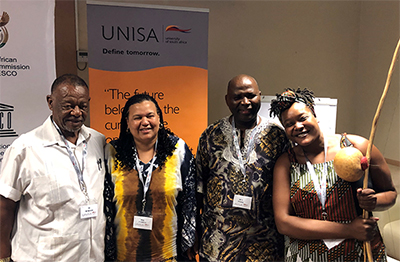
From left: Dr Mongane Wally Serote, renowned poet, author and activist; Elinor Sisulu, Executive Director of the Puku Children’s Literature Foundation; Dr Somadoda Fikeni, Advisor to the Unisa Principal and Vice-Chancellor and Director of VC projects; and Zanele Ndlovu, who performed a traditional song
On 21 February 2019, Unisa, the United Nations Educational, Scientific and Cultural Organization (UNESCO) and the Puku Children’s Literature Foundation hosted a roundtable discussion themed "My language, my heritage: promoting children’s literature and reading in South Africa’s indigenous languages" at the university’s Muckleneuk Campus.
The event marked International Mother Language Day and UNESCO’s International Year of Indigenous Languages, which seeks to promote, preserve and revitalise indigenous languages. International Mother Language Day is a worldwide annual observance held on 21 February to promote awareness of linguistic and cultural diversity and promote multilingualism.
The spectre of monolingualism looms large
In his welcome address, Prof Mandla Makhanya, Unisa Principal and Vice-Chancellor (VC) and also Vice-Chairperson of the South African National Commission of UNESCO, said that the current wave of globalisation has accelerated the imposition of westernisation, with English monolingualism being the most dominant feature. "The 4th Industrial Revolution of the 21st century has aggressively reinforced this process," he said, "further alienating people from their indigenous languages, heritage and histories. In this roundtable discussion and networking we ought to come up with practical steps for reversing this trend and reaffirming our indigenous languages while taking advantage of customising the currently available technological tools of digital communication."
Makhanya said that the university’s partnership with UNESCO and Puku will prove vital to the higher education sector at large. "There can be no African Renaissance or an ‘Africa rising’ narrative if Africans are alienated from their own heritage," he warned.
A global issue
Elinor Sisulu, Executive Director of the Puku Children’s Literature Foundation, said that there had been some resistance against participating in the International Year of Indigenous Languages, with detractors saying that it was part of a global agenda. "However," she said, "we must remember that the fight against apartheid was also a global agenda, and many people and countries participated."
Commenting on the low level of achievement among black learners, with over 50% of learners dropping out of school, Sisulu said that the situation breeds exclusion, poverty and inequality that have far-reaching consequences for the development and stability of the country. "The literacy levels of mainly black learners in public schools are not adequate to enable them to use either the indigenous African languages or English as languages of learning and teaching," she said. "Also, the national education policy of additive multilingualism from grade 1 is not likely to succeed without interventions in learners’ reading skills."
Arguing for a multilingual reading skills improvement intervention, Sisulu said that future national goals of offering some university and technical and vocational educational and training college courses would prove to be a knowledge and skill acquisition challenge without such an intervention. "Increasing access to books and stories, and promoting indigenous language reading and books, are important aspects of the national reading goals," she said. "The Puku Children’s Literature Foundation is deeply invested in improving the quality and quantity of children’s books in all South African languages."
Punctuated by brisk audience participation, Unisa staffers gave short presentations on university projects relevant to the roundtable discussion. These include the Unisa Language Festival, the Unisa Storytelling Festival, translations of the curriculum and the African languages on Wikipedia initiative.
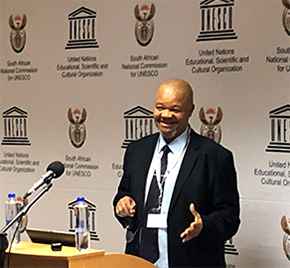
Professor Mandla Makhanya, Unisa Principal and Vice-Chancellor, and also Vice-Chairperson of the South African National Commission of UNESCO |
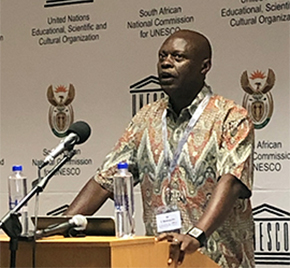
Carlton Mukwevho, Secretary-General of the South African National Commission of UNESCO, outlined the history and activities of the commission |
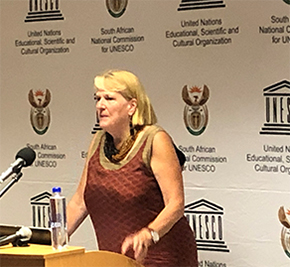
Dr Britta Zawada, Programme Director and Deputy Executive Dean of the College of Human Sciences at Unisa |
"We have regressed"
Speaking on the side-lines at the event, Dr Somadoda Fikeni, Advisor to the Unisa Principal and Vice-Chancellor and Director of VC projects, said that, concerning the development and uptake of indigenous languages, South Africa has regressed since 1994. "Before 1994 language heritage was used as a weapon of resistance, but after 1994 some people, especially parents, thought that social mobility and being respected in a society means that one should assimilate to the dominant culture. It is a mistaken notion that you have to culturally disarm yourself in order to succeed in life. One needs to look only at China, India and Japan, who use their own languages yet still advance technologically. However, the process can be reversed if we have champions in various leadership positions. It will not take only government, but will require the concerted effort of all of society."
* By Philip van der Merwe, Communications Directorate, Department of Institutional Advancement
Publish date: 2019-02-26 00:00:00.0

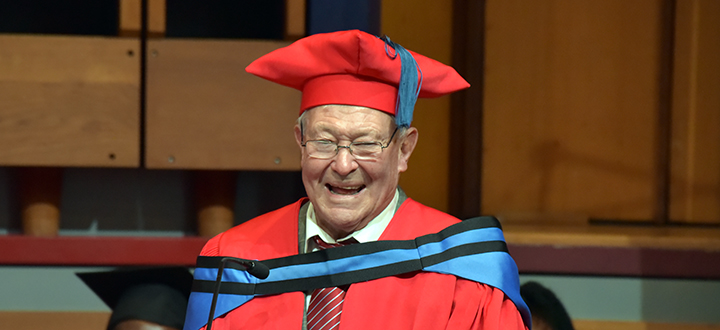 Community champion and agricultural entrepreneur extraordinaire honoured by Unisa
Community champion and agricultural entrepreneur extraordinaire honoured by Unisa
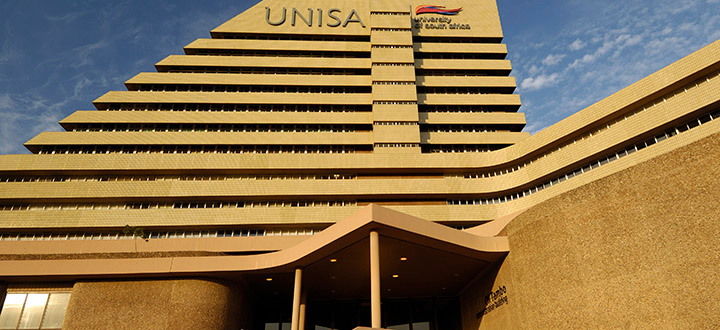 Unisa remains anchored among the waves
Unisa remains anchored among the waves
 Inhlanyelo Hub explores sustainable tourism initiatives in Marico Biosphere Reserve
Inhlanyelo Hub explores sustainable tourism initiatives in Marico Biosphere Reserve
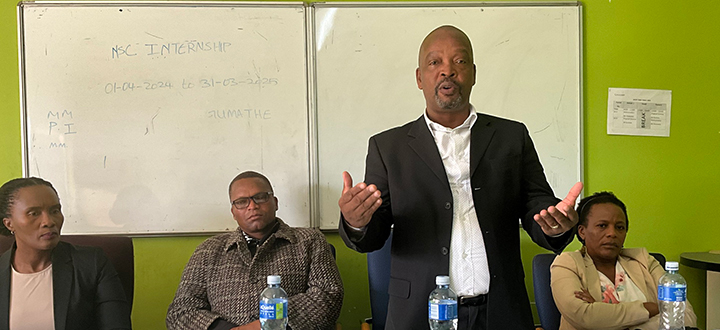 Unisa KZN Region explores extending university services to KwaMpungose community
Unisa KZN Region explores extending university services to KwaMpungose community